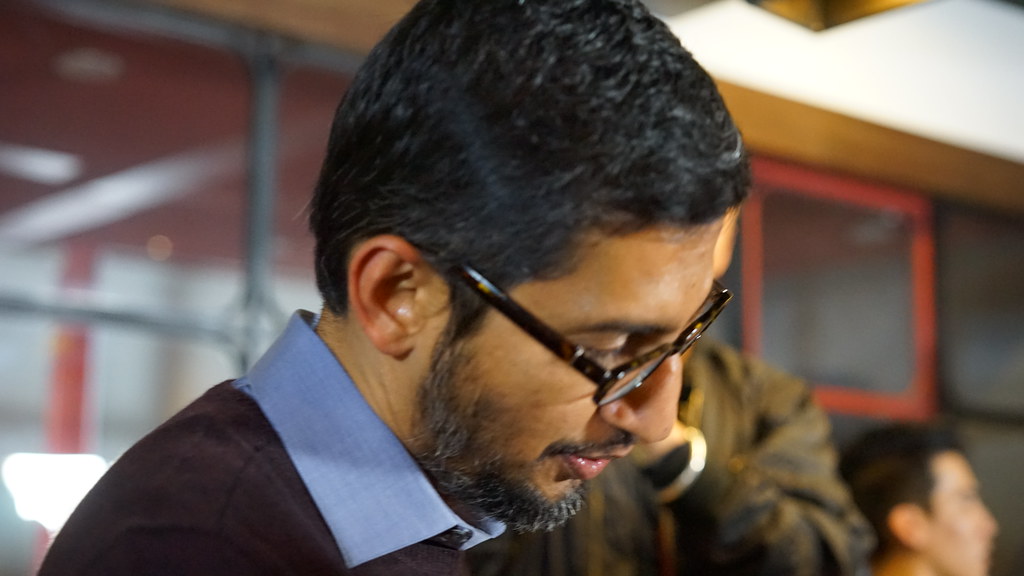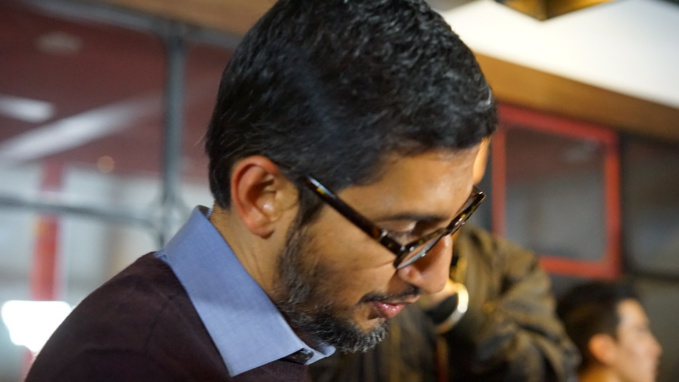Yesterday's hearings were held as part of a special meeting of the House of Representatives Antimonopoly Committee. Google CEO Sundar Pichai, Facebook co-founder and CEO Mark Zuckerberg, Apple CEO Tim Cook, Amazon founder and CEO Jeff Bezos answered questions from congressmen in video mode. A common complaint from lawmakers against the leaders of the tech industry is that their influence on the market has become too great, which can harm competition and the development of the market as a whole. Head of the committee, David Cicilline, began the meetings with the words: “The founding fathers of our country would never bow before the king. Therefore, we will never bow before the emperors of the Internet economy.”
Amazon has previously been criticized for its dominance in the e-commerce market. Facebook is the largest social network in the world, and also owns such popular services as WhatsApp and Instagram. Google is the world leader in Internet search and owns the world's largest video hosting service, YouTube. Although Apple does not dominate the smartphone market, it fully owns one of the largest online app stores in the world, the App Store.
During the hearings, Republican congressmen emphasized that high-tech companies discriminate against conservative segments of society through censorship or blocking. “Big hi-tech is plotting against conservatives. This is not suspicion, this is not intuition, this is a fact,” said Rep. Jim Jordan, Ohio. After such a statement, some congressmen from the Democratic Party rebuked Mr. Jordan for trying to promote "marginal conspiracy theories" in Congress: a loud skirmish broke out between the congressmen, after which the head of the committee, David Cicilline, had to call his colleagues to order.
Most of the questions from the congressmen arose to Google and Sundar Pichai, who represented this company. Critics have focused on Google's dominant position in the Internet search and search advertising market, the recommendation and blocking policy on YouTube, which belongs to Google, and Google's news aggregation services (such as Google News).
“Why is Google stealing content from honest businesses?” Mr. Sisilin asked the head of Google, referring to the practice of republishing news reports from newspapers, publishing houses and news agencies.
This practice has been criticized by many publishing houses in the past, claiming that Google is robbing them of the profits from readers' consumption of their content. Sundar Pichai replied that he did not agree with this formulation of the question and that his company provides an opportunity to get acquainted with the content directly on the publishers' sites. Republicans said that conservative news sites are being discriminated against or blocked on YouTube, to which Mr. Pichai said that “Conservative voices are now heard on YouTube more than ever.”
Democratic officials say Google's dominant position in the Internet search market has resulted in "the Internet turning into a walled garden", limiting certain resources in search results. As an example, they cited excerpts from internal correspondence of Google employees discussing that certain sites had "too much traffic." Mr. Pichai stated that he was not aware of such documents. In his opinion, competition in the Internet search market exists thanks to the so-called "vertical search" on specialized sites dedicated to trade, tourism, etc. Given the criticism towards Sundar Pichai, some experts have suggested that Google is now most likely to face antitrust measures.
source: cnet.com
Amazon has previously been criticized for its dominance in the e-commerce market. Facebook is the largest social network in the world, and also owns such popular services as WhatsApp and Instagram. Google is the world leader in Internet search and owns the world's largest video hosting service, YouTube. Although Apple does not dominate the smartphone market, it fully owns one of the largest online app stores in the world, the App Store.
During the hearings, Republican congressmen emphasized that high-tech companies discriminate against conservative segments of society through censorship or blocking. “Big hi-tech is plotting against conservatives. This is not suspicion, this is not intuition, this is a fact,” said Rep. Jim Jordan, Ohio. After such a statement, some congressmen from the Democratic Party rebuked Mr. Jordan for trying to promote "marginal conspiracy theories" in Congress: a loud skirmish broke out between the congressmen, after which the head of the committee, David Cicilline, had to call his colleagues to order.
Most of the questions from the congressmen arose to Google and Sundar Pichai, who represented this company. Critics have focused on Google's dominant position in the Internet search and search advertising market, the recommendation and blocking policy on YouTube, which belongs to Google, and Google's news aggregation services (such as Google News).
“Why is Google stealing content from honest businesses?” Mr. Sisilin asked the head of Google, referring to the practice of republishing news reports from newspapers, publishing houses and news agencies.
This practice has been criticized by many publishing houses in the past, claiming that Google is robbing them of the profits from readers' consumption of their content. Sundar Pichai replied that he did not agree with this formulation of the question and that his company provides an opportunity to get acquainted with the content directly on the publishers' sites. Republicans said that conservative news sites are being discriminated against or blocked on YouTube, to which Mr. Pichai said that “Conservative voices are now heard on YouTube more than ever.”
Democratic officials say Google's dominant position in the Internet search market has resulted in "the Internet turning into a walled garden", limiting certain resources in search results. As an example, they cited excerpts from internal correspondence of Google employees discussing that certain sites had "too much traffic." Mr. Pichai stated that he was not aware of such documents. In his opinion, competition in the Internet search market exists thanks to the so-called "vertical search" on specialized sites dedicated to trade, tourism, etc. Given the criticism towards Sundar Pichai, some experts have suggested that Google is now most likely to face antitrust measures.
source: cnet.com



















